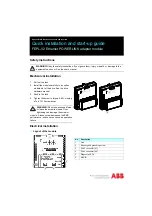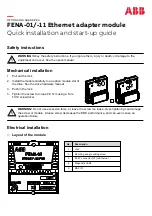
4 Programming: Fundamentals of NC, File Management, Programming Aids, Pallet Management
4.13 P
a
llet Oper
ation with T
ool-Or
ient
e
d Mac
h
ining
4.13 Pallet Operation with Tool-
Oriented Machining
Application
Pallet tables are used for machining centers with pallet changer: The
pallet table calls the part programs that are required for the different
pallets, and activates datum shifts or datum tables.
You can also use pallet tables to run in succession several programs
that have different datums.
Pallet tables contain the following information:
n
PAL/PGM
(entry obligatory):
The entry
PAL
identifies the pallet,
FIX
marks the fixture plane and
PGM
is used to enter the workpiece.
n
W-STATE:
Current machining status. The machining status is used to
determine the current stage of machining. Enter
BLANK
for an
unmachined (raw) workpiece. During machining, the TNC changes
this entry to
INCOMPLETE
, and after machining has finished, to
ENDED.
The entry
EMPTY
is used to identify a space at which no workpiece is
to be clamped or where no machining is to take place.
n
METHOD
(entry obligatory):
Entry which determines the method of program optimization.
Machining is workpiece-oriented if
WPO
is entered. Machining of the
piece is tool-oriented if
TO
is entered. In order to include subsequent
workpieces in the tool-oriented machining, you must enter
CTO
(continued tool oriented). Tool-oriented machining is also possible
with pallet fixtures, but not for multiple pallets.
n
NAME
(entry obligatory):
Pallet or program name. The machine tool builder determines the
pallet name (see Machine Manual). Programs must be stored in the
same directory as the pallet table. Otherwise you must enter the full
path name for the program.
Pallet management in combination with tool-oriented
machining is a machine-dependent function. The standard
functional range will be described in the following. Refer
to your machine manual for more information.
Summary of Contents for TNC 426
Page 3: ......
Page 4: ......
Page 8: ...IV...
Page 10: ...VI...
Page 26: ......
Page 27: ...1 Introduction...
Page 41: ...2 Manual Operation and Setup...
Page 54: ......
Page 55: ...3 Positioning with Manual Data Input MDI...
Page 59: ...4 Programming Fundamentals of NC File Management Programming Aids Pallet Management...
Page 122: ......
Page 123: ...5 Programming Tools...
Page 153: ...6 Programming Programming Contours...
Page 201: ...7 Programming Miscellaneous functions...
Page 226: ......
Page 227: ...8 Programming Cycles...
Page 366: ......
Page 367: ...9 Programming Subprograms and Program Section Repeats...
Page 381: ...10 Programming Q Parameters...
Page 424: ......
Page 425: ...11 Test run and Program Run...
Page 443: ...12 MOD Functions...
Page 472: ......
Page 473: ...13 Tables and Overviews...
Page 496: ......
















































